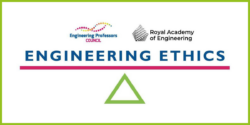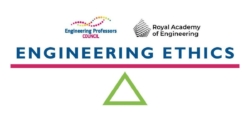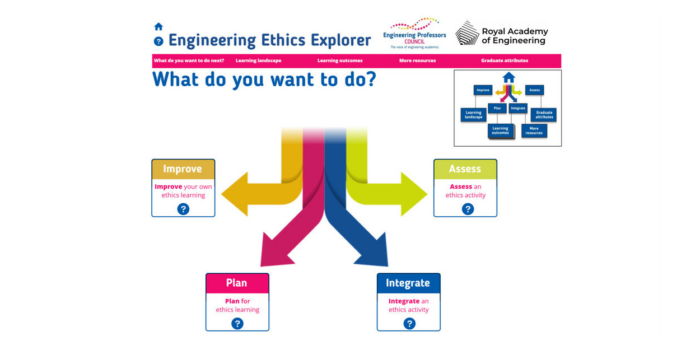
Teaching ethics and wondering how to tie learning outcomes to accreditation criteria? Look no further!
The Ethics Learning Landscape, part of the Engineering Ethics Toolkit‘s interactive Ethics Explorer, illustrates in table form the relationship between learning outcomes, AHEP criteria, graduate attributes, and possible locations for inclusion within a course or module.
Whilst the Ethics Learning Landscape is best viewed as part of the Ethics Explorer, which replaced the static engineering ethics curriculum map published in 2015, there is also a printable version available in PDF form, that summarises content from the interactive Explorer.
The Ethics Explorer is designed to help engineering educators navigate the landscape of engineering ethics education, finding their own path through what can sometimes seem like a wilderness. The Ethics Explorer is part of the Engineering Ethics Toolkit, an open access resource designed to help engineering educators embed ethics in their teaching.
Access our latest Ethics Toolkit content, and learn how to get involved here.
This post is also available here.
 The
The 